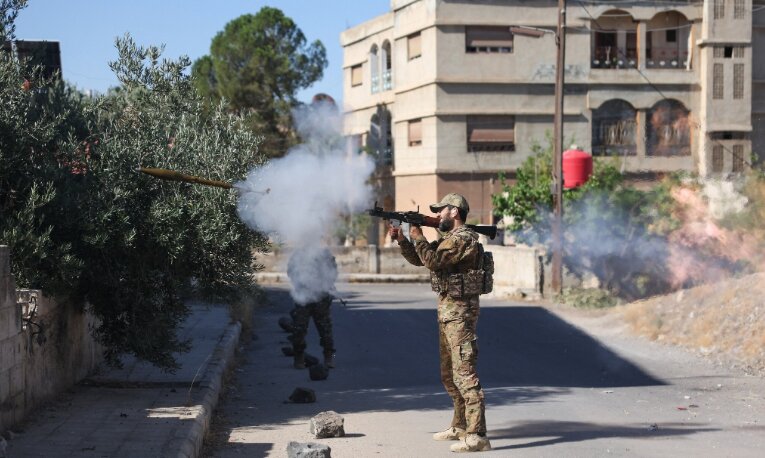Destructive chaos in Syria backfires

BEIRUT - There are growing signs that the current structure of the Syrian government no longer serves Western interests. By entering Sweida, the factions operating under the Syrian government forces have shown they cannot be reliably controlled.
It appears the Syrian leadership may have believed that by accommodating Israeli demands, its factions could act freely in Sweida. The assumption was likely that mutual interests between Israel and the Syrian state would outweigh Israel’s relationship with the Druze. That calculation has failed.
This situation offers a clear lesson: any actor that allies with the U.S. and the Israeli occupation entity should understand they are disposable. Just as these powers elevate local forces to serve their agenda, they will abandon or undermine them when it suits their interests.
No matter how much the Syrian government concedes to Western demands, if it proves unable to control the armed groups beneath it, it will never be viewed as a reliable tool. The chaos is useful for the West when they wish to direct it against their targets; however, the Israeli occupation entity also does not tolerate a chaotic or factionalized situation in its backyard. What we now see is that the sectarianism within these factions surpasses the Syrian leadership's ability to contain them, revealing a significant loss of authority.
Despite fulfilling Western demands, Damascus has shown it cannot rein in these chaotic elements, which could threaten the very interests the West seeks to protect. In such a case, the West would prefer dealing with a contained adversary rather than an ally with uncontrollable militias. Western powers are therefore likely considering alternatives: actors who can both meet their objectives and control the loose situation, demonstrating the ability and power to redirect it.
In a recent speech, the Syrian president framed Syria’s path as a choice between continued war and internal peace, expressing a preference for the latter. That statement, however, serves as a signal to the Israeli occupation: "I am prepared to meet your demands in full." The effective handover of Sweida to Israel marks a tipping point. From just 10 km outside Damascus, down through Quneitra, Dara’a, and Suweida, Israel now holds de facto influence, justified through the presence of the uncontrolled factions on the ground.
The pressing question now concerns who will control Damascus should the central government fall. In the event of collapse, the situation could become even more volatile. The Kurds in the northeast, under American support, are positioned to assert themselves against the Turks in the north and the Israelis in the south. The sectarian militias will not remain passive; rather, we can expect intensified conflict, with every faction and its foreign backers scrambling for power.
